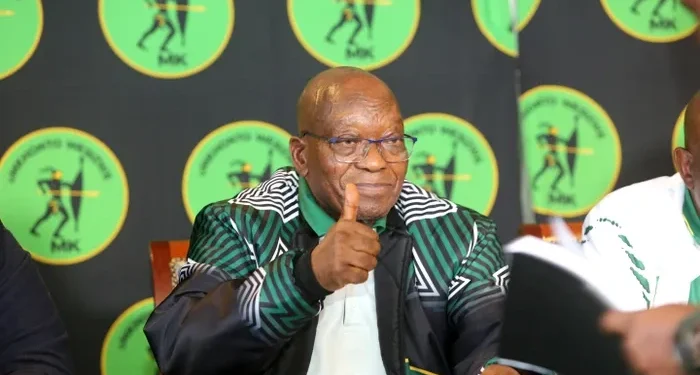Reactions to Floyd Shivambu’s recent press conference have been swift and varied. Given his political history, the response is unsurprising.
Shivambu is no ordinary figure. He was a key leader in the ANC Youth League under Julius Malema and played a crucial role in forming the EFF, shaping its policies and electoral strategy. His move to the Umkhonto we Sizwe Party (MKP) after the 2024 elections raised eyebrows, especially as he took up the position of Secretary General.
Given his insider knowledge and influence, many were stunned by his claims of financial mismanagement within MKP and his sharp criticism of its members, as well as those in the EFF and ANC. His revelations could harm not only the party but also his own reputation. Only time will tell the full impact.
Some speculate that had Shivambu been included in MKP’s parliamentary list, his press conference might never have happened. Instead, his outburst could be seen as the reaction of a frustrated politician denied his desired position.
His accusations—particularly about alleged foreign funding from Morocco and questionable withdrawals of R7 million monthly—have serious implications. EFF’s Sinawo Tambo highlighted these concerns, while MKP’s Andile Mngxitama warned of a coordinated effort to weaken the party.
Critics view Shivambu’s actions as desperate—a man lashing out after losing influence. Others believe MKP’s failure to place him in Parliament pushed him to expose the party’s flaws, possibly to position himself as a wronged reformer.
The turmoil in MKP offers broader lessons for political organizations. Internal conflicts, unchecked ambitions, and weak leadership can destabilize even the most promising movements. MKP, which entered politics with great momentum in 2024, now risks decline, much like the Congress of the People (COPE).
Effective leadership requires managing disputes fairly and prioritizing the party over individual egos. When personal grievances take over, the result is often self-destruction—leaving supporters disillusioned.
Shivambu’s situation mirrors this. Unlike Malema or Zuma, who rebuilt their careers through charisma and populism, Shivambu has often been a secondary figure. His latest move casts doubt on his judgment and motives.
As commentator Glen Sungano Mpani noted, aligning with parties later dismissed as “directionless,” a “cult,” or “gullible” raises questions about Shivambu’s credibility. True leadership, he argues, is defined by principles—not just shifting loyalties.
For now, it remains unclear whether Shivambu can recover from this moment. His next steps will determine if he can reinvent himself—or if this marks the end of his political relevance.






















